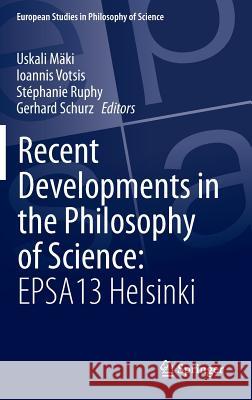Recent Developments in the Philosophy of Science: Epsa13 Helsinki » książka
topmenu
Recent Developments in the Philosophy of Science: Epsa13 Helsinki
ISBN-13: 9783319230146 / Angielski / Twarda / 2015 / 391 str.
Kategorie:
Kategorie BISAC:
Wydawca:
Springer
Seria wydawnicza:
Język:
Angielski
ISBN-13:
9783319230146
Rok wydania:
2015
Wydanie:
2015
Numer serii:
000782600
Ilość stron:
391
Waga:
0.73 kg
Wymiary:
23.39 x 15.6 x 2.39
Oprawa:
Twarda
Wolumenów:
01
Dodatkowe informacje:
Wydanie ilustrowane











